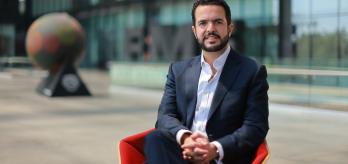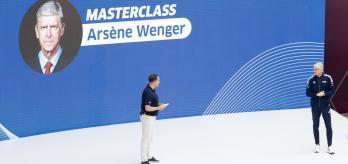Learning
-
How a better understanding of organisational context can help effective prioritisation of budget and resource
-
The leadership and management skills required to lead an effective strategy
-
The importance of taking time to reflect, reposition and reprioritise
Pillars and strategy
Technical directors must develop a strong understanding of the context of their organisation and strategy in order to prioritise time and resource, says Andy Gould, Chief Football Officer for the Scottish Football Association.
“As a technical director you have to understand the context of your strategy and the resources and people that you have within your organisation to deliver it,” he explains. “It is important to ask yourself: do you have enough resource? Do you require additional resources? Do you need to move some of that resource to different areas? I think the technical director role needs to make sure there is a balance across all of the key issues and areas.”
Gould, who was named SFA Chief Football Officer in 2021, has a long history with Scottish football. Since joining the organisation in 2005, Gould has held positions as a Regional Manager, assisted with youth national teams, worked as a coach educator and Head of Football Development. Gould’s new role sees him leading the development, growth and improvement of football throughout Scotland.
“We have a strategy within the football department based on four key pillars,” explains Gould. “So, grassroots is a key function of that and getting as many people playing and enjoying the game as we possibly can. The second part is the girls’ and women's pillar which is a growing part of the game and really important to us. That pillar is about trying to get more players playing, but also trying to develop talent within that space.
“Coach education and development is the third key aspect and we’re trying to get better coaches to help improve the game. The final pillar of the strategy is the national teams and elite youth. Here, we’re trying to identify potential, develop talent and provide the pathway for our very best players to move into our international teams.
“Those are the four key pillars that we are involved in and all of our work falls from that strategy and those four key pillars.”
Taking time to reflect, reposition and reprioritise
Technical directors must find time to reflect on the progress of their strategy in order to reprioritise and reposition if appropriate, says Gould. “The job requires you to be involved in so many different aspects. Sometimes you can find yourself very much involved in the ‘doing’ and it can sometimes be difficult to take a step back. But if you're involved in ‘doing’ all the time, then it's hard for you to reflect. So, it’s so important to find time to reflect and then possibly reprioritise and reposition some of the work.
“Also, your focus areas may change based on the priority of the association. For example, if national teams is a very important area and there's a requirement to improve in that area, then there's a focus there that needs to be dialled up. Likewise, if we identify that we need to improve in another pillar then more focus will be put there.
“So, I always think there's a number of different reasons and rationale as to where you, as the technical director, must get involved. But I think you just have to constantly check yourself and the strategy to see where you're going.”
How to lead a strategy: resilience and agility
Leadership and management skills linked to strategy are critical to the success of the technical director, says Gould. “As a technical director you need an understanding of strategy and you need to have an ability to lead a strategy and enable people to be part of that and support the process.
“The leadership and management skills linked to strategy are critical. There's a need to have that strong knowledge of your own organisation, the people and the context of what the game looks like in your country. From that, you need to know the areas that require most support. So, for me that is the most critical part of the role and it's something that you need to keep evolving and developing.”
The importance of resilience and agility
The challenges of the last few years, including a global pandemic, have underlined the importance of resilience and agility when leading a strategy, explains Gould.
“As a leader you need to have the ability to be agile and to have resilience. It’s also something we look for in our staff. During the pandemic, problem-solving, thinking on your feet and being quite agile were all key. I think a lot a of people will look back on that period and will have become stronger as people and employees who were able to deliver through those challenges.”
Gould points to the advances of technology and the delivery of online coach education as an example of agile leadership. “Coach education was one of those pieces of work where we felt we used agility to ensure business continuity. The team adapted very quickly to the challenges and we went online with all our courses and were able to continue. So, we learned a huge amount during that period of time.”
Summary
-
Take time to reflect on your strategy in order to reposition and reprioritise effectively
-
Ensure your strategy aligns with the goals and context of your organisation and football in your country
-
Leading an effective strategy requires agility, resilience and good people
Reflection
-
How simple is your strategy to summarise and communicate?
-
How often do you review the progress or your strategy?
-
Are there any areas of your strategy that you need to reprioritise or reposition





















